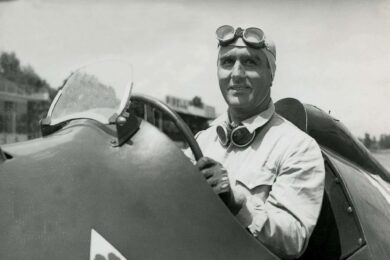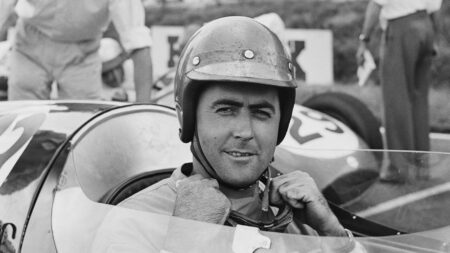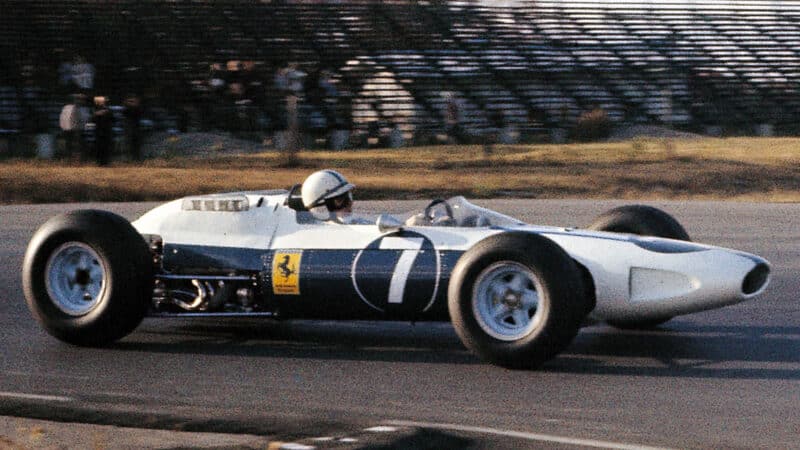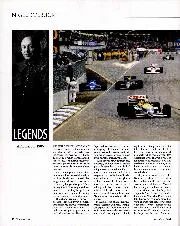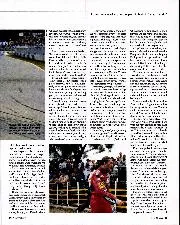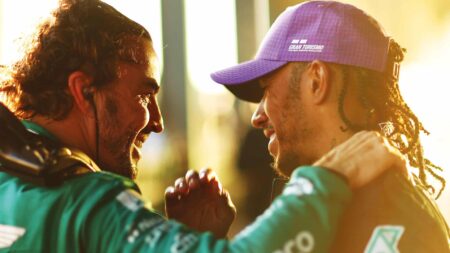While Fangio’s Alfetta expired, Farina cruised home to the victory, becoming a unique champion who left a lasting impression on his competitors.
“He was a great driver, and I loved his style at the wheel – that relaxed, arms outstretched way he had. I thought it looked so good that I copied it!” Stirling Moss told Motor Sport.
“On the track, though, Farina was a bastard, completely ruthless – dangerous.
“And the worst of it was that he’d behave exactly the same way with an inexperienced guy. If he was lapping you, boy, you’d better make sure you didn’t get in his way – he’d just push you off the road.
“In those days there genuinely was a different attitude to what we used to call dirty driving, and you really didn’t come across it very often. But he was something else.”
1959 US GP
Jack Brabham beats Stirling Moss and Tony Brooks
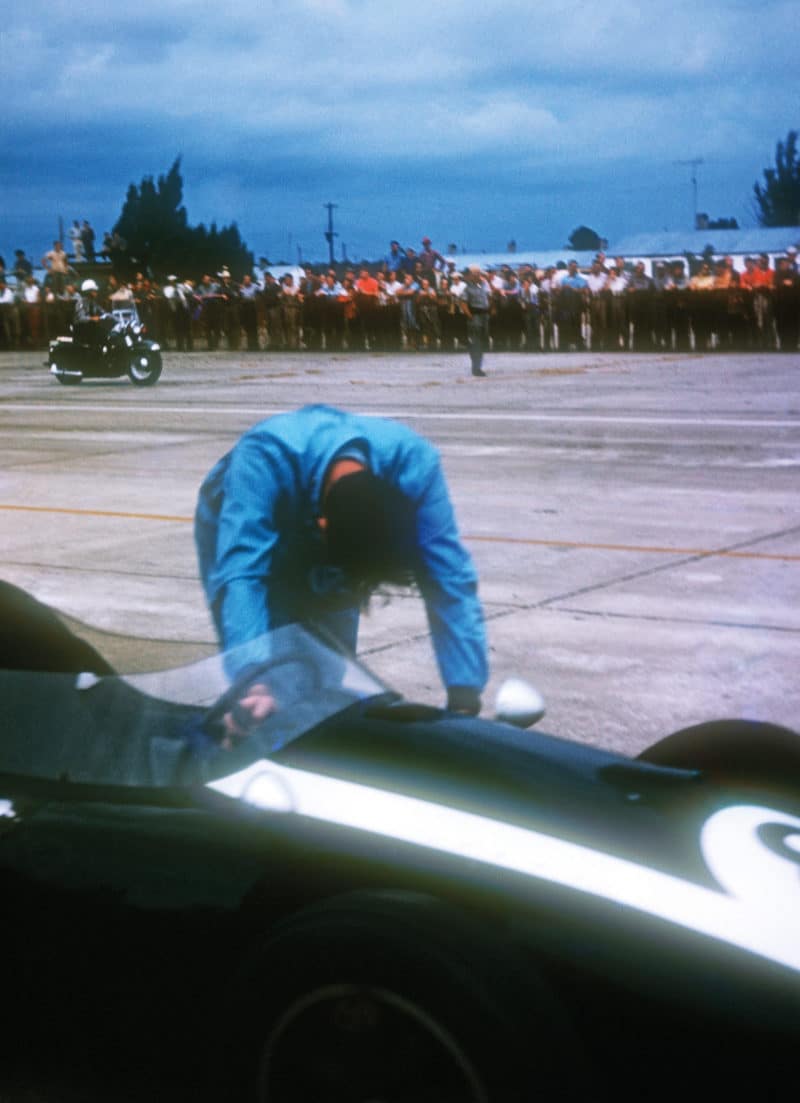
Brabham crosses the line at the 1959 US GP – just
Grand Prix Photo
One of the great F1 three-way showdowns, held in the heavy Florida heat.
Cooper’s Jack Brabham went into the race gunning for his first world championship, needing to finish ahead of rivals Stirling Moss and Tony Brooks.
Moss had to finish at least second with Brooks and Brabham behind while the latter needed a victory and see the other score no points.


